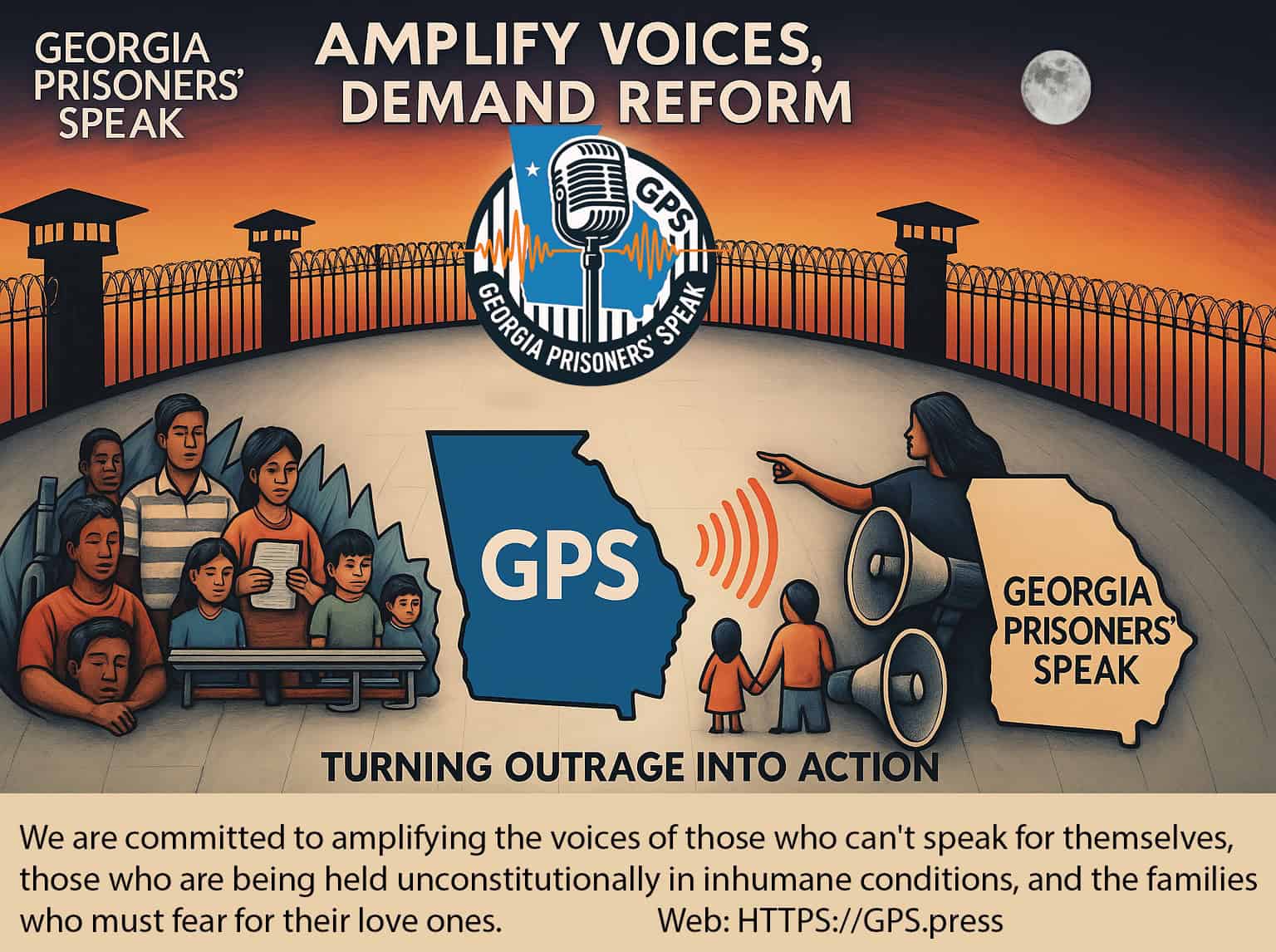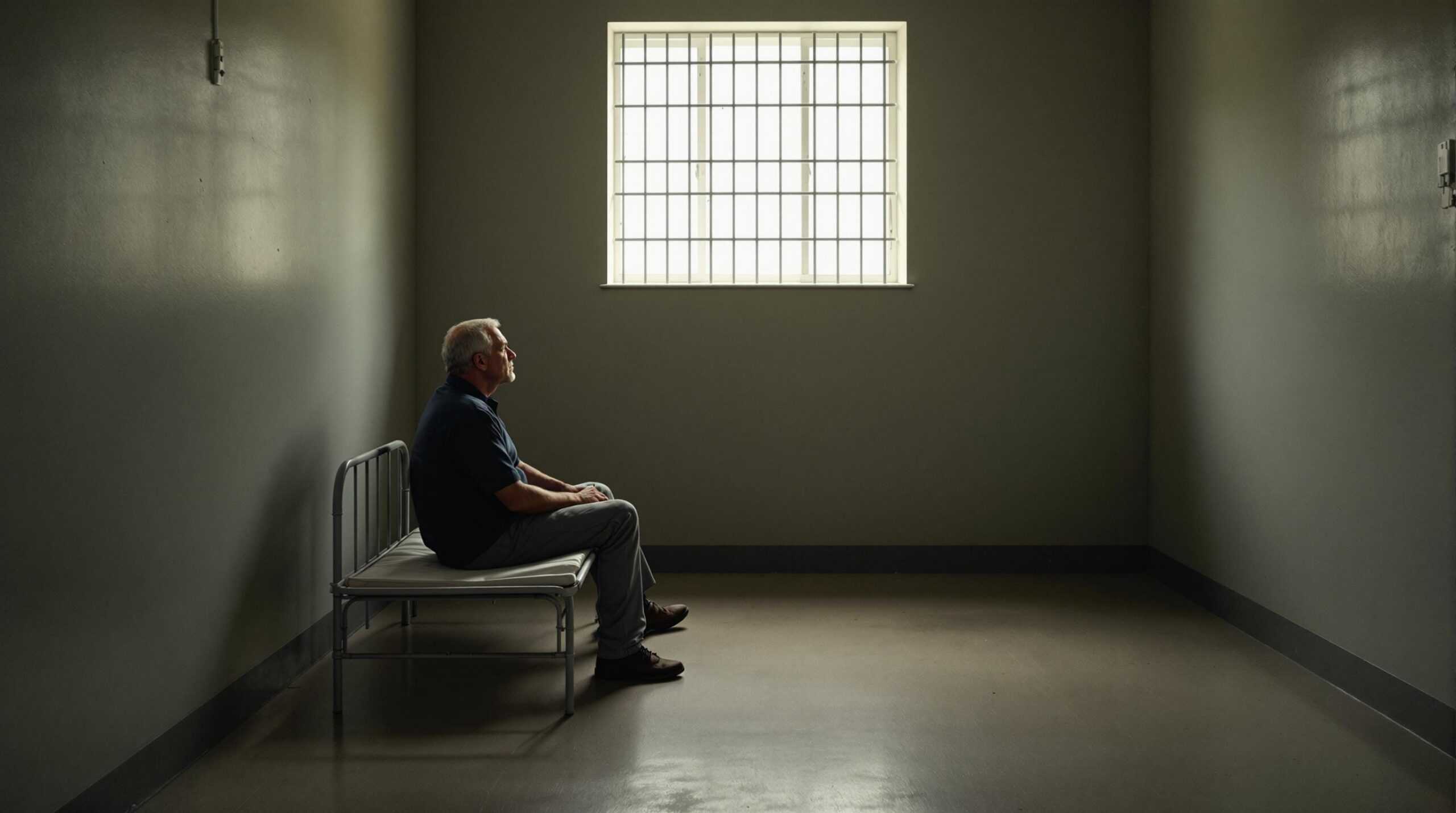Georgia uses solitary confinement as standard practice. The DOJ found it violates the Constitution. Inmates spend months or years in 7′ x 12′ cells with no human contact, no natural light, and no programming. Windows are painted black. Meals arrive through a slit in the door. Georgia’s suicide rate is twice the national average—and solitary drives it higher. The DOJ investigation found conditions in Georgia’s isolation units constitute cruel and unusual punishment. 1
What Solitary Looks Like
Georgia calls it the “Tier program.” The reality:
- Cells measure 7′ x 12′—smaller than a parking space
- Windows covered with painted metal—no natural light
- No commissary, no reading materials—nothing to occupy the mind
- 23 hours daily in cell—one hour out, if staff are available
- Broken ventilation—sweltering in summer, freezing in winter
Some inmates have been confined in shower stalls for hours, causing heat exhaustion. The DOJ documented cells with overflowing toilets and human waste.
The Mental Health Toll
Isolation destroys mental health:
- 19 suicides in 2020—twice the national average
- 63% of isolated prisoners develop new hallucinations
- Depression, anxiety, self-harm increase dramatically
- PTSD persists after release—”psychological incarceration” continues
Dr. Craig Haney, a prison psychology expert, documented severe psychological risks in Georgia’s Special Management Units. The state ignores his findings.
Who Gets Isolated
Vulnerable populations face the highest rates:
- LGBTQ+ inmates—isolated “for protection” that destroys them
- Mentally ill inmates—symptoms treated as discipline problems
- Inmates who file grievances—retaliation disguised as administrative segregation
- 122,000 prisoners are held in solitary confinement daily across the U.S.
Georgia puts mentally ill people in conditions that cause mental illness. Then it punishes the symptoms.
Court Orders Ignored
Courts have ordered Georgia to reform. Georgia refuses:
- Federal judge found officials in contempt for failing to improve conditions
- Staffing shortages exceed 70% at some facilities—no one to supervise isolation units
- 142 homicides from 2018-2023—95.8% increase in final three years
- Constitutional violations continue despite court orders
The law says Georgia must change. Georgia ignores the law.
Take Action
Use Impact Justice AI to send advocacy emails demanding an end to prolonged solitary confinement. The free tool crafts personalized messages to Georgia lawmakers—no experience required.
Demand:
- Strict limits on solitary confinement duration
- End to isolation for mentally ill inmates
- Natural light and programming in isolation units
- Independent monitoring of solitary confinement practices
Further Reading
- Inside the War Zone: The Reality of Georgia Prisons
- DOJ Uncovers ‘Horrific and Inhumane’ Conditions in Georgia Prisons
- GPS Informational Resources
- Pathways to Success
About Georgia Prisoners’ Speak (GPS)
Georgia Prisoners’ Speak (GPS) is a nonprofit investigative newsroom built in partnership with incarcerated reporters, families, advocates, and data analysts. Operating independently from the Georgia Department of Corrections, GPS documents the truth the state refuses to acknowledge: extreme violence, fatal medical neglect, gang-controlled dorms, collapsed staffing, fraudulent reporting practices, and unconstitutional conditions across Georgia’s prisons.
Through confidential reporting channels, secure communication, evidence verification, public-records requests, legislative research, and professional investigative standards, GPS provides the transparency the system lacks. Our mission is to expose abuses, protect incarcerated people, support families, and push Georgia toward meaningful reform based on human rights, evidence, and public accountability.
Every article is part of a larger fight — to end the silence, reveal the truth, and demand justice.

- DOJ Report, https://www.justice.gov/d9/2024-09/findings_report_-_investigation_of_georgia_prisons.pdf[↩]

1 thought on “Solitary Confinement in Georgia Prisons: Key Facts”